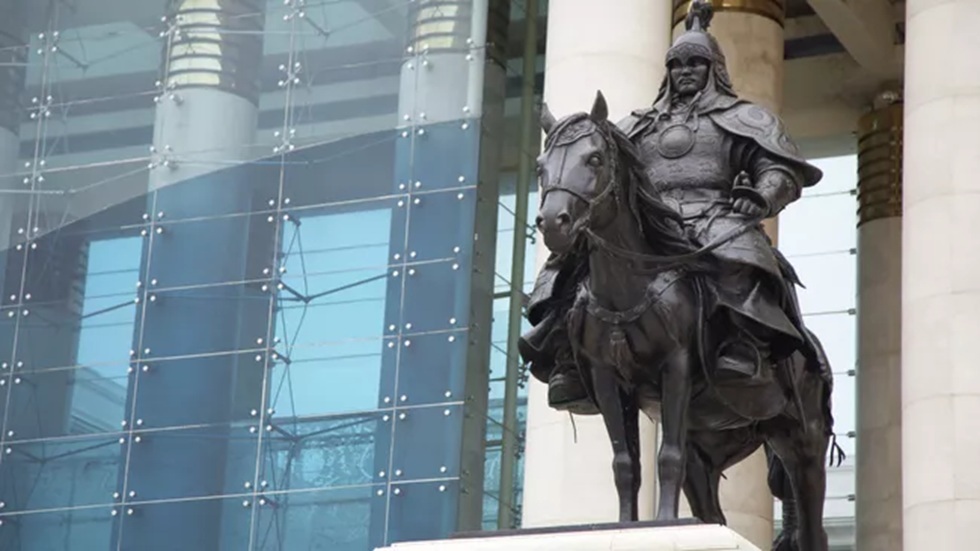At a critical moment during the fierce Battle of Ain Jalut, the Mamluk Sultan Saif ad-Din Qutuz shouted before the final attack: “Woe to Islam! O God! Grant victory to Your servant Qutuz over the Mongols.”
This decisive battle took place on September 3, 1260, between the Egyptian Mamluk army led by Sultan Saif ad-Din Qutuz and Emir Al-Zahir Baybars, and the Mongol forces of Hulagu’s army commanded by Kitbuqa Noyan.
By 1260, the Mongols under Hulagu, grandson of Genghis Khan, had destroyed the Abbasid Caliphate and captured Baghdad, later taking Damascus, Homs, and Aleppo.
Hulagu Khan sent envoys to the Mamluk Sultan in Egypt, Saif ad-Din Qutuz, demanding Egypt’s surrender. The Sultan responded by executing the envoys and displaying their heads at the gates of Cairo.
The Mongol advance towards Egypt was delayed after Hulagu received news of the death of the great Mongol Khan Möngke, prompting him to return home to compete for the throne. He left behind a force in Syria led by Kitbuqa Noyan, estimated at twenty thousand fighters.
At the end of 1260, Sultan Qutuz and Baybars gathered about 24,000 fighters and marched to the Levant to confront the Mongols and block their path. The commanders set up camp near the city of Acre, then the capital of the Crusader Kingdom of Jerusalem.
The Mamluk forces relied on elite cavalry units and Syrian fighters familiar with the terrain, while the Mongols depended on light cavalry and mounted archers but were unfamiliar with the area.
The two armies met near Ain Jalut, located southeast of Galilee. Before the battle began, the Sultan concealed a large part of his cavalry around a wooded valley and sent Emir Baybars with an advanced force to provoke the Mongols into attacking.
The impetuous Mongol forces were lured into a narrow valley and fell into an ambush, attacked from the flanks and high ground. The fighting intensified and the Mongols nearly gained the upper hand. In those critical moments, the Sultan’s cry “Woe to Islam!” rose, and the Mamluk forces launched a sweeping attack with the Sultan personally participating in the fight.
Meanwhile, the Mongols repelled the Mamluk left wing but were soon encircled after troops allied with them, led by a Mamluk prince named Al-Ashraf Musa, defected. Simultaneously, Emir Baybars launched a massive counterattack.
The Mamluks inflicted a severe defeat on the Mongols, capturing and executing their commander Kitbuqa. Before his death, the defeated leader vowed terrible Mongol revenge.
The Mongol remnants retreated towards the city of Beisan, but the Mamluk forces pursued and killed most of them. Some Mongol fighters fled in various directions but were besieged by locals, ending up dead or captured.
The Mamluks at Ain Jalut dealt the Mongol Empire its first major defeat, permanently halting its expansion in Palestine, thereby protecting Egypt and North Africa from its threats. The Mamluks also annexed Syria to their state, strengthening their rule and later eliminating the Crusader states in the region.













Recommended for you
Exhibition City Completes About 80% of Preparations for the Damascus International Fair Launch
Talib Al-Rifai Chronicles Kuwaiti Art Heritage in "Doukhi.. Tasaseem Al-Saba"
Unified Admission Applications Start Tuesday with 640 Students to be Accepted in Medicine
Egypt Post: We Have Over 10 Million Customers in Savings Accounts and Offer Daily, Monthly, and Annual Returns
His Highness Sheikh Isa bin Salman bin Hamad Al Khalifa Receives the United States Ambassador to the Kingdom of Bahrain
Al-Jaghbeer: The Industrial Sector Leads Economic Growth